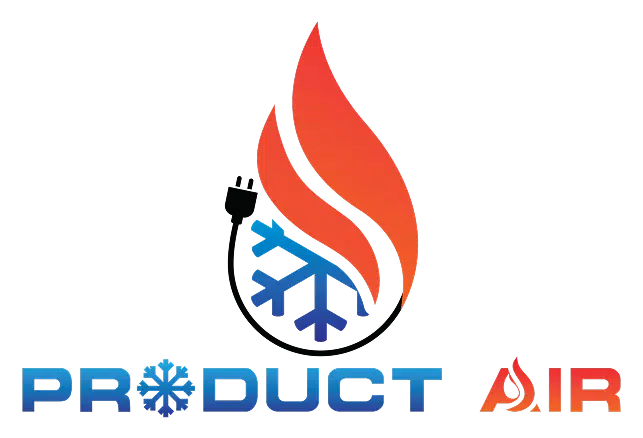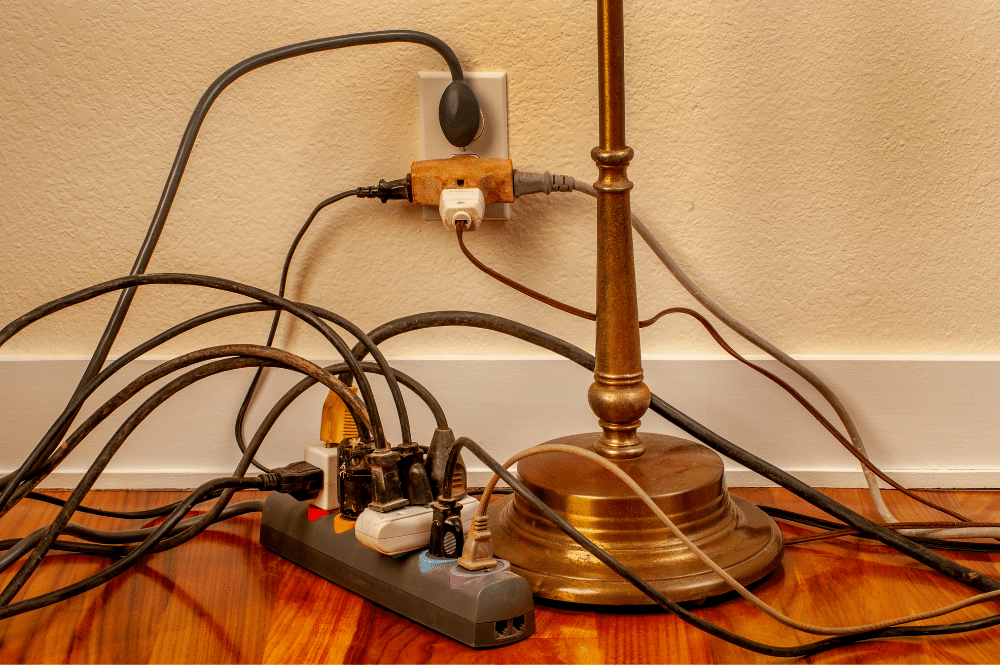As the temperatures drop and heaters crank up, your home’s electrical system enters a season of heavy use. With this increased load comes the potential for electrical hazards, making it essential to ensure that your home is safe from the risks that come with winter heating. Many homeowners don’t realize the strain their electrical system is under during the heating season.
Without taking the necessary precautions, the possibility of malfunction or, worse, fire can turn your cozy winter into a nightmare. To stay ahead of these issues, it’s important to learn vital electrical safety tips and schedule winter electrical inspections.
The Power of Prevention: Winter Electrical Inspections
We’ve all been there: you plug in one too many devices, and suddenly, the lights flicker, the circuit trips, or worse—you smell something burning. During the colder months, this can happen far more frequently due to the increased electrical load from heaters, electric blankets, and other appliances. Winter electrical inspections can help prevent these issues before they start.
An inspection involves more than just flipping a few switches. Licensed professionals dive deep into your electrical system, identifying issues that may be hidden from sight. Outdated wiring, loose connections, and overloaded circuits are just some of the problems that can silently develop into major hazards if left unchecked. Regular inspections not only ensure the safety of your home, but they also improve the overall efficiency of your heating system. If your electrical setup is functioning optimally, you can heat your home more effectively, all while saving on energy costs.
Common Electrical Problems That Arise During Winter
Once the cold weather hits, the combination of higher electricity use and potentially faulty systems creates a perfect storm for electrical malfunctions. The top issues that tend to appear during the heating season may seem minor at first glance, but they can escalate quickly.
One of the most common problems is overloaded circuits. With space heaters running, holiday lights strung throughout the house, and other appliances in full swing, circuits can easily become overwhelmed. This leads to breakers tripping and the potential for sparks and short circuits. In extreme cases, an overloaded circuit can cause electrical fires.
Another common problem is faulty wiring. Older homes are especially prone to this, as the wiring may not be equipped to handle modern electrical demands. Frayed wires, loose connections, or corroded outlets are all signs that your electrical system may be in need of immediate attention. Heaters, in particular, are sensitive to electrical issues, and even a minor fault can cause the system to malfunction, leaving your home cold or, in worst-case scenarios, dangerous.
Electrical Safety Tips to Keep Your Warm and Safety
While homeowners can take preventive steps with simple electrical safety tips, nothing replaces the value of a professional inspection, especially before the heating season. An expert’s trained eye can identify hidden dangers that might go unnoticed until they become critical. Winter electrical inspections not only safeguard your home but also provide peace of mind knowing that every potential hazard has been addressed.
1. Identifying Hidden Electrical Issues
One of the biggest reasons expert inspections are crucial is that many electrical problems remain hidden behind walls, in attic spaces, or within circuit panels. Outdated wiring is a common issue in older homes, and without routine checks, it can go unnoticed for years. Frayed or exposed wires are dangerous as they can easily overheat or spark, leading to electrical fires. Inspections also catch loose or corroded connections, which may cause heating systems to malfunction or short out.
Moreover, heating appliances, especially older ones, can develop electrical faults over time. An expert inspector will check your furnace or heat pump’s wiring to ensure everything is functioning safely and efficiently. This proactive approach reduces the risk of breakdowns in the middle of winter and helps you avoid costly emergency repairs.
2. Ensuring Compliance with Electrical Codes
Electrical codes evolve over time, and homeowners may not always be aware of changes that impact their property. Professionals stay updated on the latest codes and regulations and can assess whether your system meets the current safety standards. For instance, newer regulations may require specific types of outlets or wiring materials that reduce fire risks. Ensuring that your home complies with these codes helps to protect not just your property but your family’s safety as well.
A professional inspector will also ensure that your circuit breaker and electrical panel are properly rated for the increased load during the heating season. If your panel is undersized or outdated, it may struggle to keep up with the demand, leading to frequent tripping or, in more severe cases, overheating, which can pose a fire hazard.
3. Optimizing System Efficiency
Expert inspections aren’t only about preventing fires or accidents—they’re also about optimizing your electrical system for better performance. A well-maintained system can significantly enhance the efficiency of your home’s heating. When circuits, wiring, and connections are functioning optimally, heaters and other appliances run more smoothly. This means your HVAC system won’t need to work as hard, which can lower your energy consumption and save you money on utility bills.
For instance, a furnace operating with poor electrical connections may not produce consistent heat, leading to uneven heating in your home. An inspection will ensure that all electrical components are in good working order, helping your heating system perform at its best when you need it most.
4. Avoiding Unexpected Downtime
Picture this: It’s the coldest night of the year, and suddenly, your heater stops working. You’re left scrambling for blankets and space heaters while waiting for an emergency repair. Unfortunately, this scenario is all too common when electrical systems aren’t inspected before winter. An unexpected breakdown in your heating system can be a nightmare, and often, the root cause is an undetected electrical issue.
By scheduling winter electrical inspections, you reduce the risk of this happening. Experts can pinpoint potential problems, such as failing circuit breakers or faulty thermostat wiring, that could cause your heating system to go offline when you need it most. A thorough inspection will ensure that your home’s electrical system is reliable all season long.
5. Protecting Your Home and Family
Finally, the most important reason to prioritize expert inspections is to protect your home and family. Electrical fires caused by overloaded circuits or faulty wiring are a significant threat, especially during the heating season when energy usage spikes. Winter electrical inspections dramatically lower this risk by identifying and addressing any vulnerabilities in your system.
At Product Air Heating & Cooling, our licensed experts go beyond the surface to make sure your electrical system is safe, efficient, and up to standard. Our inspections provide comprehensive safety checks on your wiring, breakers, heating connections, and overall electrical load capacity. This allows you to enjoy a warm, comfortable winter season without the worry of electrical hazards.
Stay Safe This Winter
As winter approaches, don’t leave your electrical safety to chance. Between following essential electrical safety tips and scheduling a professional inspection, you can ensure that your home is both warm and safe. Whether it’s preventing electrical fires or catching issues early, a little precaution goes a long way. If you haven’t scheduled your winter electrical inspection yet, now’s the time! Contact Product Air Heating & Cooling today to make sure your home is prepared for the cold months ahead.

